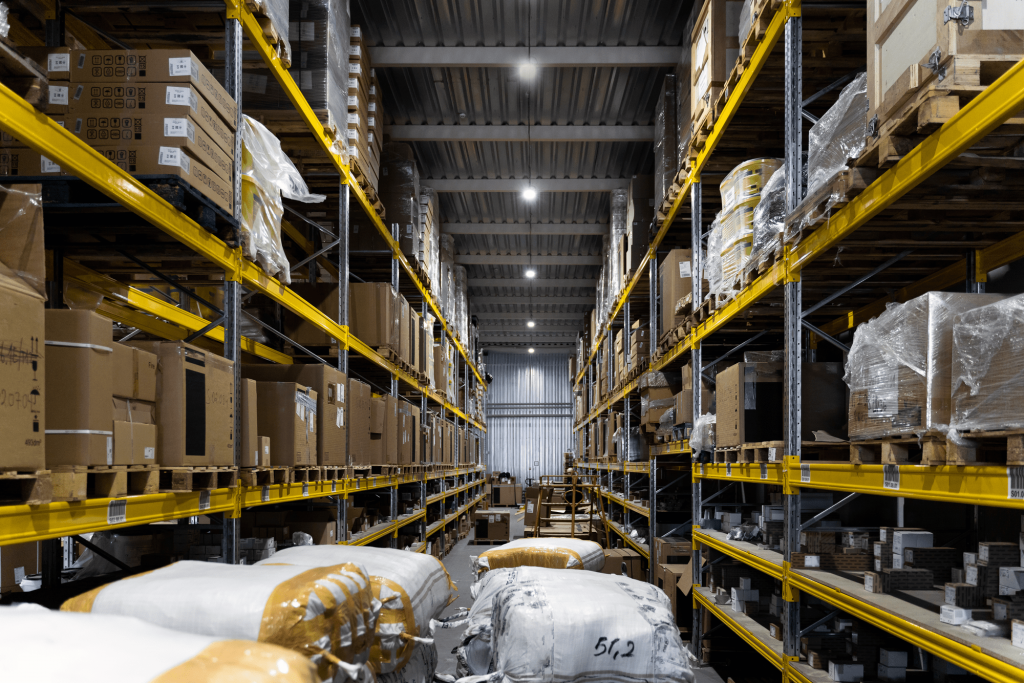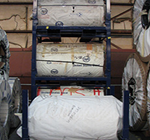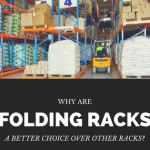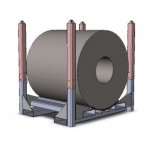The Impact of Sustainable Storage Solutions for the Retail Industry Warehouse
Sustainable storage solutions refer to storage practices and systems that are designed to minimize the impact on the environment. These solutions are becoming increasingly important in the retail industry warehouse as companies seek to reduce their carbon footprint and improve their sustainability practices. The retail industry is one of the largest industries in the world, and it relies heavily on effective storage solutions to manage inventory and meet customer demand.
Without proper storage, products may become damaged or lost, leading to significant financial losses for the company. Therefore, sustainable storage solutions are essential for reducing waste, conserving resources, and improving the bottom line of retail companies. However, the traditional storage solutions used in the retail industry often have significant environmental impacts, including high energy consumption and waste generation.

Benefits of Sustainable Storage Solutions
Sustainable storage solutions provide several benefits to the retail industry, including reduced carbon footprint, cost savings, and improved efficiency. By using sustainable storage solutions, retail companies can reduce their impact on the environment by using materials and practices that are eco-friendly. This includes using recycled materials for storage containers and reducing waste through better inventory management. These practices not only benefit the environment but also save costs for the company.
Storage solutions can help retail companies improve their efficiency by reducing the time and resources needed to manage inventory and fulfill orders. This is because sustainable storage solutions are designed to make inventory management more streamlined and effective. In summary, implementing sustainable storage solutions in the retail industry can lead to a reduction in environmental impact, cost savings, and improved efficiency.
Retail Storage Solutions
Retail storage solutions consist of a range of methods and systems designed to cater to the requirements of the sector. It is vital to have retail storage solutions, for keeping inventory in order safeguarding products and maximizing warehouse space. With the changing landscape of the sector integrating retail storage solutions is key, to staying ahead in the market and meeting customer expectations.
- Optimized Storage Layouts: Retail storage solutions often involve carefully planned layouts to maximize space utilization. By optimizing the arrangement of shelves, racks, and storage bins, retail warehouses can store more products in a limited area, reducing the need for additional storage space.
- Dynamic Storage Systems: Implementing dynamic storage systems such as adjustable shelving and modular racking allows retail warehouses to adapt to changing inventory levels and product sizes. These flexible retail storage solutions ensure that space is used efficiently and can be reconfigured as needed.
- Advanced Inventory Management: Retail storage solutions often include sophisticated inventory management systems that track product locations, quantities, and movement. These systems improve accuracy, reduce the risk of overstocking or understocking, and streamline order fulfillment processes.
- Automation and Robotics: The integration of automation and robotics into retail storage solutions enhances efficiency and reduces labor costs. Automated guided vehicles (AGVs), robotic picking systems, and conveyor belts can significantly speed up the handling and retrieval of products, ensuring faster order processing.
- Sustainable Practices: Incorporating sustainable practices into retail storage solutions is crucial for reducing environmental impact. This includes using eco-friendly materials for storage containers, implementing energy-efficient lighting, and optimizing HVAC systems to reduce energy consumption.
Examples of Storage Solutions for the Retail Industry Warehouse
In addition to the benefits mentioned earlier, sustainable storage solutions can also take various forms in the retail industry warehouse. Some examples of storage solutions for the retail industry include:
Reusable Packaging: This includes using packaging materials that can be reused multiple times, such as plastic containers or pallets. By reusing packaging, retail companies can reduce waste & minimize their environmental impact.
Recyclable Materials: Using recyclable materials for storage containers such as cardboard or biodegradable plastics, can reduce waste and increase sustainability. These materials can also be recycled at the end of their lifespan, reducing the overall environmental impact.
Efficient Lighting and Energy Systems: Implementing energy-efficient lighting and energy systems in the warehouse can reduce energy consumption and lower costs. This includes using LED lighting, motion sensors to turn off lights when not in use & installing energy-efficient HVAC systems.
Importance of Racks in Retail Industry Warehouse
Racks are an essential component of warehouse storage systems, especially for the retail industry. Here are some of the reasons why racks are important in the warehouse:
Maximize Storage Space: Racks are designed to optimize space and increase storage capacity within a given floor area. This is especially important in the retail industry, where space is often at a premium and every inch of storage space counts.
Improve Accessibility: They can provide easy access to products, which can help to speed up order fulfillment and reduce the time and effort required to locate items. This is especially important in the fast-paced world of retail, where quick and efficient order processing is critical to maintaining customer satisfaction.
Enhance Safety: Properly installed and maintained racks can prevent damage to products, which can reduce the risk of losses & increase the lifespan of the inventory.
Increase Efficiency: It can be customized to suit specific warehouse needs and can help to streamline warehouse operations. They can help to organize products in a logical and efficient manner, which can save time and improve productivity.
Why Sustainable Warehousing is Important
In today’s supply chain management sustainable warehousing plays an important role by emphasizing the importance of minimizing the footprint of warehouse activities. Sustainable practices, in warehousing include implementing energy saving strategies minimizing waste generation and using eco materials. By prioritizing sustainability, in warehouse operations not are resources preserved. Efficiency is improved and costs are lowered as well.
- Energy Efficiency: Implementing energy-efficient lighting systems, such as LED lights, and optimizing HVAC systems can significantly reduce energy consumption in warehouses. Using renewable energy sources like solar panels can further enhance sustainability in warehousing.
- Waste Reduction: Sustainable warehouse management involves reducing waste through recycling programs and the use of biodegradable packaging materials. Efficient inventory management systems also help in minimizing product waste by ensuring timely stock rotation and reducing overstocking.
- Green Building Practices: Constructing warehouses with sustainable building materials and incorporating green building practices, such as natural lighting and ventilation, contribute to sustainability in warehousing. LEED (Leadership in Energy and Environmental Design) certification is an example of a standard that promotes sustainable building practices.
- Water Conservation: Implementing water-saving technologies, such as low-flow fixtures and rainwater harvesting systems, can help in reducing water consumption in warehouses. Sustainable warehouse management includes monitoring and optimizing water usage to ensure conservation.
- Eco-friendly Transportation: Sustainable warehousing extends to the transportation of goods. Using electric or hybrid vehicles for intra-warehouse transport and optimizing delivery routes to reduce fuel consumption are important aspects of sustainable warehouse management.
The future outlook for storage solutions in the retail industry warehouse is promising as the industry continues to evolve and adapt to changing consumer demands and technological advancements. With the rise of e-commerce and omni-channel retailing, the need for efficient and flexible storage solutions has become more crucial than ever. Retailers are increasingly investing in automation and robotics to improve efficiency and reduce labor costs. This trend is expected to continue, with the adoption of technologies such as artificial intelligence and the internet of things (IoT) to optimize warehouse operations and improve inventory management.

Related Posts:
- What are OSHA Regulations for Stacking Pallets?
- Tips for Rack Safety and Keeping OSHA Away
- Tips for Warehouse Rack Safety
- How To Identify Areas Where Rack Guarding Is Needed?
About The Author












